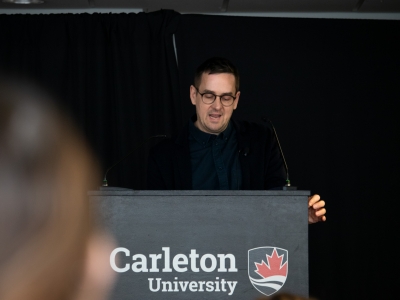Fen Osler Hampson, Professor and Director of The Norman Paterson School of International Affairs (NPSIA), and associate I. William Zartman, the Jacob Blaustein Professor Emeritus at the School of Advanced International Studies (SAIS) of The Johns Hopkins University in Washington, have just published a fascinating look at how talk can inform public policy on a remarkable scale, and lack of talk can have just as powerful an impact.
The Global Power of Talk: Negotiating America’s Interests (Paradigm Publishers, 2012) explores the uses and limits of the power of negotiation and diplomacy in U.S. foreign policy at a critical juncture in U.S. history. Beginning with the failure of U.S. diplomacy to nip Saddam Hussein’s ambitions in the bud prior to the first Gulf War, it argues that a series of diplomatic blunders laid the foundations for the uninhibited use of “gun power” over “talk power” for the next two decades. It critically examines missed opportunities in America’s handling of the Israeli-Palestinian conflict in both the Clinton and George W. Bush administrations. Looking ahead, it shows how the United States should negotiate with “unengageables” like Iran, North Korea, and terrorists wherever they occur.
John S. Odell, Professor and Director of the School of International Relations at the University of Southern California, says: “Two esteemed experts on international political negotiation make a powerful new case for the value of this foreign policy tool. They illustrate the costs of bungled opportunities and advance concrete suggestions for the future. Diplomats and students should read these lessons from decades of world experience.”
Monday, February 6, 2012 in Faculty Publications, News
Share: Twitter, Facebook




